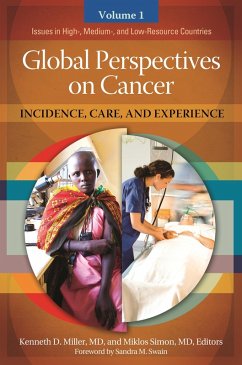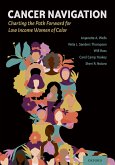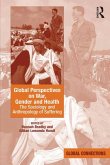Two leading oncologists, along with experts spanning several medical disciplines, shed light on the global pandemic of cancer, particularly the difference in diagnosis, treatment, and care between global communities.
Despite advancing globalization and amazing breakthroughs in modern medicine, developing countries continue to struggle with the prevention and treatment of the most common killer in the world today-cancer. Logistical barriers, scarceness of resources, and economic hardships in these regions make the screening, detection, and care of this disease difficult at best.
This book is the only one of its kind to review the pandemic of cancer from a global and epidemiological perspective. The work is presented in three sections, focusing on key issues in cancer management, treatment of specific types of the disease, and the difference in medical care between low-, medium-, and high-resource countries. Chapters address the history, incidence, and treatment across nations; presiding cultural attitudes which may delay or prevent treatment in many parts of the world; and the geopolitics of cancer care and funding. Patients and caregivers from all around the globe explain the daily challenges of living with the disease in their nation.
Despite advancing globalization and amazing breakthroughs in modern medicine, developing countries continue to struggle with the prevention and treatment of the most common killer in the world today-cancer. Logistical barriers, scarceness of resources, and economic hardships in these regions make the screening, detection, and care of this disease difficult at best.
This book is the only one of its kind to review the pandemic of cancer from a global and epidemiological perspective. The work is presented in three sections, focusing on key issues in cancer management, treatment of specific types of the disease, and the difference in medical care between low-, medium-, and high-resource countries. Chapters address the history, incidence, and treatment across nations; presiding cultural attitudes which may delay or prevent treatment in many parts of the world; and the geopolitics of cancer care and funding. Patients and caregivers from all around the globe explain the daily challenges of living with the disease in their nation.









